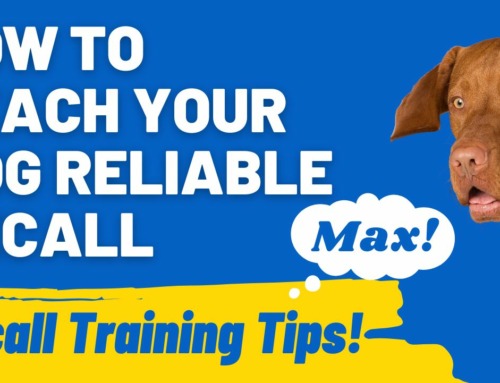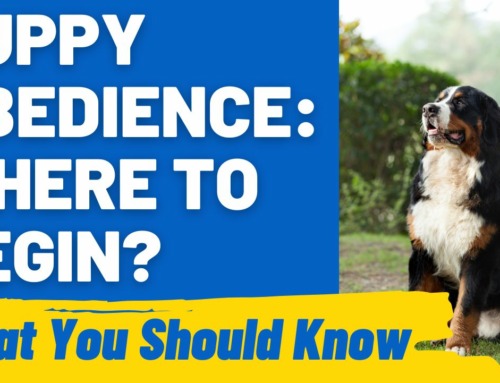Doberman puppies are full of love and affection – they are also full of energy and excitement! You may find your Doberman pup is hyperactive and enjoys frolicking through your home at a crazy pace. While the Doberman can be hyper, it’s important to view this energy as natural puppy behavior. And with proper nurture, your crazy Doberman puppy will grow to do great things!
In this article, we will cover multiple aspects of the Doberman puppy’s high energy. If you have a new Doberman puppy and are feeling discouraged, hopefully we can help you get back on track.
Why is My Doberman Puppy Out of Control?
Your Doberman puppy is likely out of control because they lack a productive energy outlet. This issue is compounded if you live in an apartment or don’t have easy access to a lawn.
Doberman puppies are very passionate and high energy. If they don’t receive the proper amount of daily exercise their behavior can become erratic and destructive.
You might be content with just a fifteen-minute walk every day, but your Doberman puppy may need considerably more than fifteen minutes.
Although the below graph shows a modest exercise routine for puppies, some pup’s will just naturally require more exercise than this.
| Puppy Age (months) | Exercise Time (minutes) |
|---|---|
| 1 | 5 |
| 2 | 10 |
| 3 | 15 |
| 4 | 20 |
| 5 | 25 |
| 6 | 30 |
| 7 | 30+ |
Instead of being frustrated with your puppy, try to put yourself in their shoes (or paws) and imagine how your Doberman feels when they don’t get enough exercise.
Here’s something to think about that may help you relate:
Imagine the feeling of being on a long plane ride, sitting in the middle seat. You’re uncomfortable. You want to move. You want fresh air! You feel like you need to stretch your legs.
While this is not exactly the same experience your Doberman will have when he or she is under-exercised, trying to imagine how your puppy is feeling can give you more sympathy and patience towards their needs.
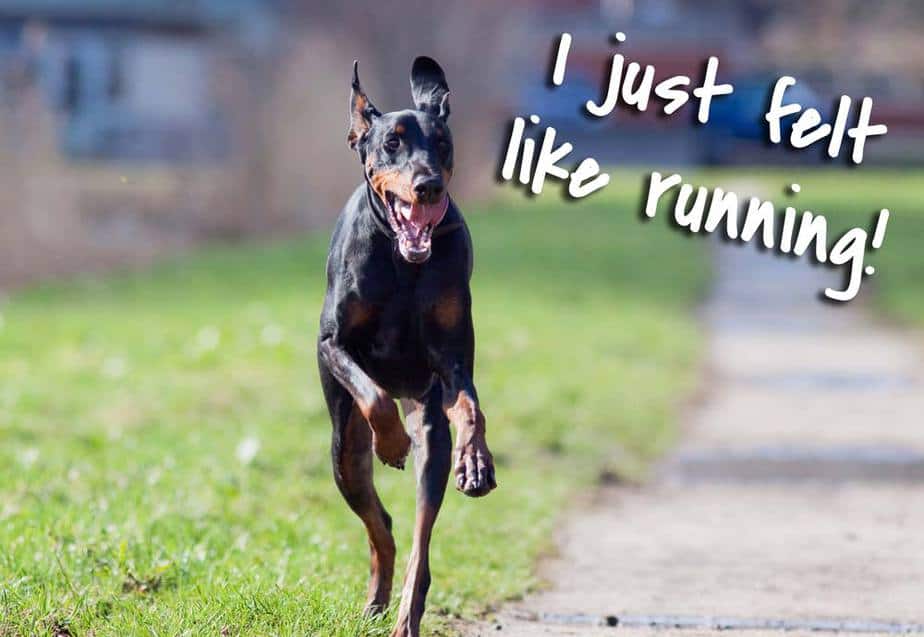
How to Calm Down My Doberman Puppy
The first step in understanding how to calm down your Doberman pup is to have realistic expectations. Just remember during training: a puppy is a puppy; they are always going to be a bit more energetic than an adult.
However, there are still some things you can do to help calm and relax your puppy.
Here are some things for you to implement into your Doberman’s life:
- Adequate exercise
- Socialization
- Organized schedule / Routine
- Playtime
Adequate Exercise
Make a goal of giving your Doberman two hours of activity each day. These two hours don’t have to be all at once. Breaking up the activity times will help you reach the two-hour goal and keep your Doberman interested throughout the day.
The two hours isn’t a two-hour walk. This will be too much for your Dobie puppy and can cause problems with their growing joints.
Activity is important to help your Doberman burn pent up energy. It’s important to note that every puppy is different. Some might need more while others need less.
Experiment with different types of activities to see if there is something your puppy likes best.
Do they like chasing the ball? Walking the sidewalk and sniffing the grass? Maybe they need to run free in a safe area. Take some time to try different things.
A game of hide-and-seek can be a great way for your puppy to burn off energy. Sometimes the problem with a walk is it’s a slow-paced activity.
Games like fetch and hide-and-seek will have them running fast and burning off that energy quickly.
To play hide-and-seek with your Dobie puppy, get them to sit and stay while someone hides treats around the house or yard. Then when you’re ready, let them at it!
Socialization
If your Doberman is especially young, then they may just need more engaging attention from humans and other dogs. Puppies are accustomed to having other puppies around to play with.
Indeed, many puppies play together almost endlessly. If your Doberman is hyper and crazy, your puppy may be trying to get your attention.
When your puppy howls and chews and darts around your home they’re essentially saying, “Come on, let’s play!”
If there are other dogs around, perhaps try to take some time each day to let your puppy socializing with them.
A puppy friend will be able to burn off energy for your Dobie in no time!
Schedule/Routine
If you don’t give your puppy a schedule, then they will create one themselves – and it may not involve desirable behaviors.
If a puppy doesn’t know when mealtime will be, they will take their anxiety out on something else (think chewing slippers).
If your puppy isn’t being put to bed at a regular time, they aren’t going to fall asleep and settle whenever you decide it’s time.
Spend some time exercising with your puppy, and socializing them with you, your family members, and other friendly dogs and puppies.
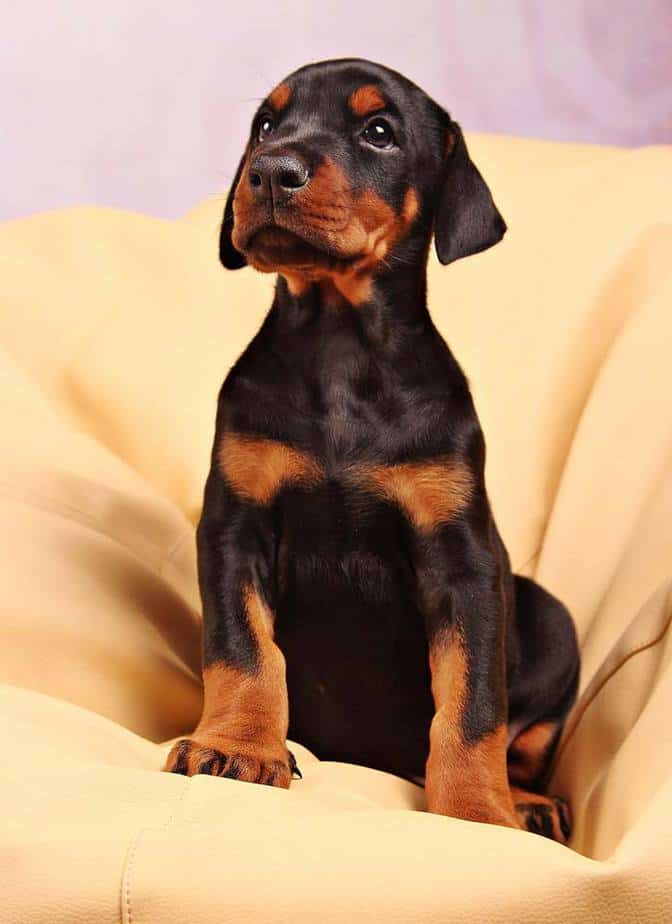
Have you read our post: Calm Down Your Crazy Puppy: A Complete Guide – We’ve gone into detail on helping owners calm down their out of control puppies.
Diet and Hyperactivity
Make sure your puppy is eating a healthy diet. Your puppy’s diet could have an effect on their behavior.
Finding healthy food for your puppy is not as easy as just buying more expensive dog chow. Like humans, puppies have food that sits well with them and foods that don’t.
Experiment with high-quality food.
We personally don’t think you can go wrong with Blue Buffalo Life Protection.
Lead by Example
Try your best to be calm yourself. Understand that your puppy is still young. It’s frustrating to find another chewed up purse or shoe; however, with proper nurture, your Doberman will grow into a calm and mature companion.
It just takes time. By the age of 2-years your Dobie puppy will have calmed down significantly.
Dogs have a way of mirroring their human companions. If you aren’t a calm person, your puppy may struggle to be calm themselves.
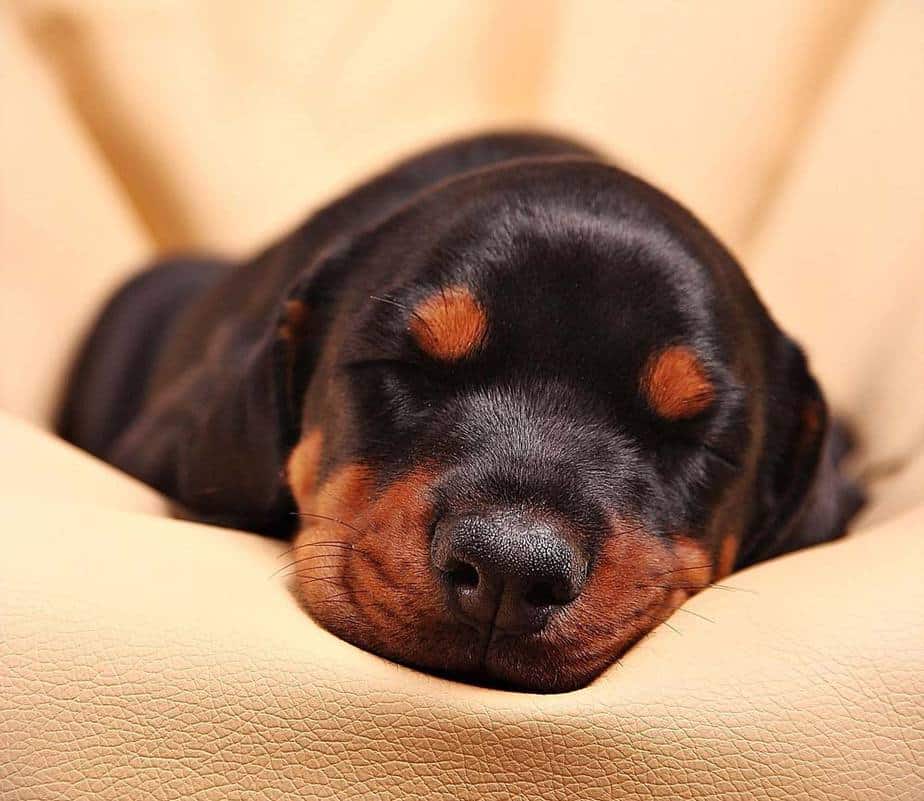
Understanding and Dealing with Doberman Puppy Negative Behaviors
Just like a toddler begins to show new behaviors to their parent, Doberman puppies will begin showing new behaviors to their companions. And, just like children, not all of these behaviors are desirable. Some will need to be redirected and corrected.
Here is a list of behavioral phases your Doberman puppy will likely go through:
- Chewing
- Biting and Snapping
- Barking
Let’s explore each of these behaviors.
Excessive Chewing
Most dogs enjoy chewing; however, Doberman puppies who are teething will have an increased urge to chew and gnaw.
Inevitably, your puppy will chew on whatever he or she can fit in their mouth! Here are a few things to know about chewing.
It’s very natural and even necessary for a puppy’s dental health. It’s important not to get angry at your puppy for chewing on something. Their mouth is one of their tools to explore the world. However, this doesn’t mean that you can’t redirect their chewing toward appropriate dental aids.
Teach your puppy which toys are appropriate to chew. This is for your puppy’s safety. You don’t want them to chew on power cords or sharp objects.
If your puppy is chewing something you don’t want them to chew, distract them with a noise, such as a clap, kissing sounds, or a high-pitched sound. Once distracted, give them something you do want them to chew on and reward them with praise.
Be sure to provide your Doberman Puppy with many different options of chew toys.
Biting and Snapping
First, let’s differentiate between these two behaviors. Biting can include playful gnawing on a human’s hand. Snapping is when you attempt to take something from your puppy and they bite at your hand in defense or frustration.
Both these behaviors should be corrected. Playful biting can become a more serious issue as your Doberman reaches adulthood.
Snapping is equally problematic. You don’t want your Doberman pup to nip a child’s hand. You must calmly and responsibly correct these behaviors for the safety of your Doberman.
Let’s go over how to correct this behavior.
Steps to Correct Biting and Snapping
- Redirect them before they bite: If you see that your Doberman is about to start biting, direct them to an appropriate toy before they start to bite.
- If the redirection is ineffective, remove your hand from their mouth and use a calm but authoritative phrase like “Don’t bite.”
- Also use the Yelp technique. If your puppy was in a litter and bit another puppy, they would cry out, or even bark back. When your puppy bites your hand, yelp high and loud and withdraw your hand.
- If your Doberman is still biting and snapping, then you can give them a time-out. Take them to a pen, or to another room and close the door. Time-outs should last no more than 2-minutes.
- If biting continues you can consult a dog behaviorist. There may be a reputable dog school in your area that can also help.
Here are some dog training / behaviorist organizations where you can reach out to get help with your puppy’s unwanted behaviors:
| Organization Name | Independent Certification | Graduates of a Specific School |
|---|---|---|
| International Association of Animal Behavior Consultants | Yes | No |
| Certification Council of Professional Dog Trainers | Yes | No |
| Karen Pryor Academy | No | Yes |
| The Academy for Dog Trainers | No | Yes |
| Board Certified Veterinary Behaviorists | Yes | No, but must be a graduate of a veterinary school |
Excessive Barking
Dobermans will bark. You will have to decide how much barking is acceptable to you. Regardless, if you feel your Doberman puppy should be barking less, here are a few things you can do to help them:
- Remove the perpetrator from the environment. If your Doberman barks at the squirrels in the back yard, consider closing the curtains to the back yard.
- Your puppy may bark and howl at night if they are anxious. This is usually just a phase when your Doberman is a puppy. Be sure to not respond to their barking or howling, as they will see this as success and will continue to do it.
- Reward them when they are quiet. Reinforce the behaviors you want.
Like humans, all Dobermans have different personalities. Your Doberman might bark more or less than other dogs.
Final Word
You know your Doberman best. If you’ve read this article and still feel that your Doberman is out of control, don’t be afraid to seek professional help from your local veterinarian, behaviorist, or dog trainer.
With that said, Dobermans are a wonderful breed! Their energy might seem excessive as a puppy, but their passion will mature as they age.
With time and proper training, your Doberman puppy will grow into a loving and loyal friend. A friend who will stick by you through thick and thin.


